Ash Sarkar Rips Government’s Refusal To Talk To Striking Doctors Only To Blame Unions
Novara Media contributing editor Ash Sarkar left Good Morning Britain host Richard Madeley agreeing with her position, after raising the key point that it’s the Conservative government’s refusal to negotiate with junior doctors when strikes are scheduled that has led to the current walk-out.
Sarkar made it clear that it was the fault of the government that National Health Service (NHS) patients would now face any issues resulting from the strike, which began Wednesday morning.
“I think the first thing is that the government really needs to change its position of not negotiating when strikes are scheduled because of taking that position,” she said. “It means that you’re less likely to reach an agreement and avert the strike action. So, that’s one way in which patients are bearing the brunt of bad government policy.”
Co-host Suzanna Reid interjected: “That’s very interesting for people watching. So you’re saying that when the [government] says, ‘come back to the negotiating table’ what they mean is ‘call off the strike.’ ‘Call off the strike and come back to the negotiating table. We will not negotiate while you are in strike mode.’
Sarkar nodded. She continued: “Whatever side of the debate you’re on, just think about it. Strategically, if you’re a doctors union, why would you get rid of the only form of leverage that you’ve got which is calling strike action? So, I think one way in which the government can make a concession, which would make an agreement more likely, would be to end the policy of no negotiations while strikes are on the table.”
Madeley then contributed to say that while he believed that the junior doctor’s ask of a 35 percent pay rise was unrealistic, that Sarkar was right.
“They’re not going to get 35 percent,” he said. “They’re going to get anything near 35 percent and I can’t see the government budging.”
Gesturing to Sarkar he continued: “I think you’re right. I think that that would actually obviously unblock the blockage, but it’s not going to happen, is it?”
Sarkar agreed: “[Junior doctors] want to be on the wards providing the best possible care for their patients. They don’t want to be missing out in work, missing out in pay and causing even more problems for these patients down the line. What the government wants is to be able to create a villain out of doctors unions and I think that that’s getting harder to do.”
Notably, throughout the conversation, GB News host Andrew Pierce, there as a counterpart right-leaning panel guest, remained silent having bemoaned that junior doctor anger has been directed at the Conservative Party, who are the party in government.
The six-day strike has raised considerable concerns among NHS leaders. There is a growing apprehension that this action could lead to a substantial disruption of routine services, potentially bringing them to a virtual standstill in certain regions. This situation underscores the critical role junior doctors play in the healthcare system, being almost half of the entire doctor workforce, and the impact of their absence.
The BMA has been vocal about the need for the medical profession to be more adequately valued, a sentiment that has been at the heart of the ongoing pay discussions. Their stance reflects a broader concern about the working conditions and compensation of healthcare professionals within the NHS.
As the strike takes effect, Prof Sir Stephen Powis, the medical director of NHS England, has expressed his concerns. He remarked that the NHS is facing one of its most challenging beginnings to a year since its inception in 1948. As the situation unfolds, all eyes are on the government’s response and the potential long-term implications for the NHS.
New: The Mediaite One-Sheet "Newsletter of Newsletters"
Your daily summary and analysis of what the many, many media newsletters are saying and reporting. Subscribe now!
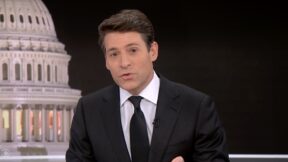
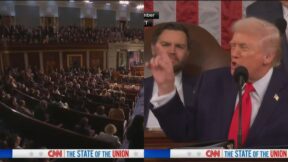
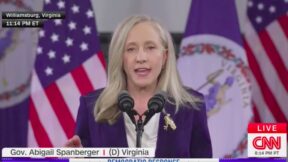
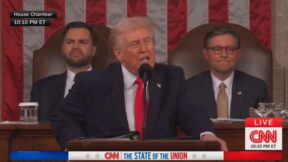
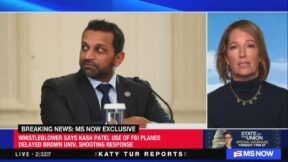

Comments
↓ Scroll down for comments ↓